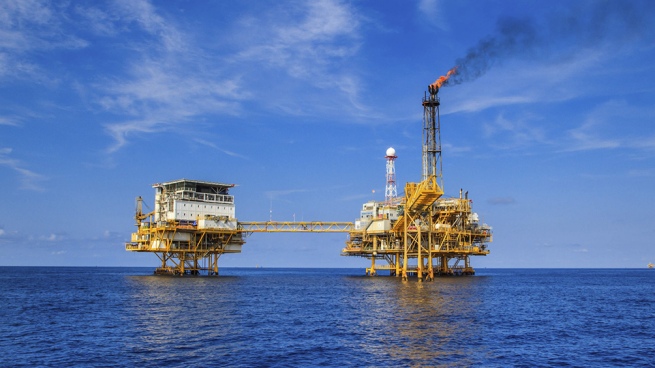Argentine scientists backed up this Tuesday the exploitation of offshore hydrocarbons in the Argentine Sea and they asked for a debate on this issue, so as to avoid falling into a “false antinomy between development and environment” that deprives the country of access to a resource for the energy transition and that avoids spending on fuel imports to which each year the country.
About twenty scientists who make up the CyTA Group (Argentine Science and Technology) published this Tuesday a document in which they put to consideration the contributions positive of one exploitation “sovereignly and environmentally responsible for our natural resources”, as in the case of unconventional resources in new areas of the Argentine Sea between 300 and 400 kilometers from the coast of Buenos Aires.
“We decided to go out with this document because we believe that it is necessary to build an alternative to the conflicting positions of development and environmentalism. It is a false dilemma because sustainable development is needed that obviously includes security and care for the environment, but solving the environmental equation with the reduction of carbon dioxide goals must consider the needs of each country,” the former minister told Télam. of Science and Technology, Robert Salvarezza.
“Argentina must fulfill its commitments but also its social debts. We need an environmentalism that considers the needs of our country“, highlighted the current president of the board of directors of YPF-Tecnología (Y-TEC).
According to the report, the debate around the exploitation of unconventional resources also occurred at the time with the development of Vaca Muerta, but today, a decade later, it has proven to have been the deposit that allowed sustaining and increasing gas production. and offset the continued decline of conventional resources.
“Without this decision, Argentina would today face a much more complex energy scenario, with greater dependence on imported energy resources and its main consequence: increased poverty,” said the report signed by academics from different branches such as Adrián Paenza, Adriana Serquis, Alberto Kornblihtt, Ana Franchi, Andrea Gamarnik,; Andrés Kreiner, Carolina Mera, Cristina Carrillo, Diego Hurtado, Dora Barrancos, Juan Pablo Paz, Marcelo Ruiz and Osvaldo Uchitel, among others.
Offshore exploitation, factor for development
“Although offshore exploitation at sea is more expensive than exploitation on the mainland, it results in a reasonable time much cheaper than importing liquefied natural gas to then regasify it and incorporate it into the distribution network, as we are obliged to do every year,” the document added.
Salvarezza (@RCSalvarezza) defended offshore exploration and asked environmentalism to consider local needshttps://t.co/6KwHgMcJTi
—Telam Agency (@TelamAgency) February 15, 2022
In it, it was argued that “the future offshore exploitation of gas and oil can and should become an important factor for the development of other fields and aspects that together sustain the country’s sovereignty.”
In this regard, Savarezza said that fossil fuels “will continue to be used for decades while the transition is advanced” and that natural gas “is much less polluting than coal, diesel oil or fuel oil, which are burned today by thermal power plants when there is a lack of gas and which must be imported at a very high cost in dollars.”
In fact, according to data from the World Bank, the production of thermoelectric energy by these means emits 40% more carbon dioxide than burning natural gas, while the European Commission is proposing to the European Parliament that it consider natural gas as the most appropriate and economical way to arrive in the short term at the economy of the so-called blue hydrogen that is produced by “reforming” the gas with the subsequent capture, storage or transformation of carbon dioxide into higher value products.
“In 2021 our country imported around 5,000 million dollars in fuels and lubricants to meet the demands of this sector in a scenario of foreign exchange restrictions. Argentina requires a greater capacity to produce energy if it intends to sustain the growth of its industry and generate more jobs, sustain transportation and provide access to energy to their homes,” the report highlighted.
Jorge Geffnerinfectologist and researcher at Conicet, was one of the scientists who signed the document with the idea that the exploitation of offshore resources be discussed in order to find a way to “make ecologically acceptable conditions compatible with economic development that includes this type of activity “.
“We are going to adopt a position in which security standards are respected but, in a country with 40% poverty, we cannot deprive ourselves of resources that could be used to combat it,” Geffner assured Télam, while maintaining that “you cannot give up an activity that can generate a significant amount of resources to combat poverty, although it is logical to ask for maximum guarantees. We have to start talking about it”.
Currently, the production of natural gas constitutes more than 50% of the energy matrix of Argentina and although the contribution of renewable energies (wind and solar, hydroelectric and bioenergy) reached 13% of the total energy consumed in the country in 2021 , it is still far from the 20% committed for 2025.
Currently, a consortium of companies headed by Equinor in partnership with YPF and Shell obtained authorization from the State to invest almost US$800 million and carry out seismic exploration studies off Mar del Plata.
However, last Friday, the Federal Court No. 2 of Mar del Plata ordered the suspension of the project by giving rise to a precautionary measure promoted by the mayor of General Pueyrredón, Guillermo Montenegro, and environmental organizations, a ruling that was appealed by the Ministry of Environment.









